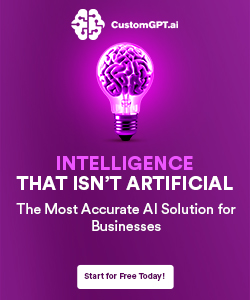It’s crucial to explore the multifaceted landscape of artificial intelligence, as it profoundly impacts various aspects of your daily life. From enhancing productivity at work to personalizing your entertainment, understanding AI can demystify its complexities and reveal its potential benefits. In this blog post, we will break down the key concepts, technologies, and ethical considerations that shape the AI sphere, empowering you to navigate this intriguing realm with confidence and insight.
Understanding Artificial Intelligence
Before plunging into the complexities of artificial intelligence, it’s crucial to grasp the foundational concepts that shape this fascinating field. From machine learning to neural networks, understanding these elements will empower you to navigate the AI landscape with greater clarity.
Definition and Scope
About artificial intelligence, it encompasses a range of technologies designed to simulate human cognition. This includes problem-solving, learning, and decision-making abilities, which can be categorized into narrow AI, designed for specific tasks, and general AI, which aims to replicate human-like intelligence across diverse functions.
Key Components of AI
Among the primary components of AI are algorithms, data, and computing power. These elements work in harmony to enable machines to learn from experience, make predictions, and perform tasks that typically require human intelligence.
Further exploring these key components, algorithms serve as the blueprint for AI systems, dictating how data is processed and decisions are made. The quality and volume of data directly influence the system’s effectiveness; richer datasets lead to superior learning outcomes. Lastly, the computing power available significantly impacts AI performance, allowing for faster and more complex calculations. By understanding these components, you can better appreciate how AI operates and its potential applications in your life and work.
The Evolution of AI
While the concept of artificial intelligence has been around for centuries, its journey from speculative fiction to practical application is remarkable. You can trace its development from simple algorithms to complex neural networks, revealing the incredible strides made in the field. By understanding this evolution, you gain insight into how AI is shaping your world today and its potential in the future.
Historical Milestones
Any study of AI’s evolution must highlight important milestones, such as the Turing Test proposed by Alan Turing in 1950, which quantified machine intelligence. The founding of the Dartmouth Conference in 1956, regarded as the birth of AI, marked the first significant collaboration among researchers. These pivotal moments laid the groundwork for subsequent innovations that you now see in everyday technology.
Recent Advances and Breakthroughs
With advancements in deep learning and natural language processing, AI has rapidly progressed, transforming various industries. From virtual assistants to predictive analytics, it is revolutionizing how you interact with technology and make decisions.
It’s fascinating to observe how recent breakthroughs, such as OpenAI’s GPT and Google’s BERT models, have pushed the boundaries of AI capabilities. These systems demonstrate exceptional understanding and generation of human-like text, enhancing user experience in applications ranging from customer service to creative writing. You can harness these advancements to streamline tasks, boost productivity, and unlock new opportunities in your personal or professional life. The continuous growth of AI is not only reshaping industries, but it also invites you to reconsider the possibilities of technology in your everyday life.
Applications of AI
Some of the most exciting applications of artificial intelligence span across various sectors, transforming the way you interact with technology in your daily life. From enhancing customer service with AI chatbots to improving predictive analytics in finance, its impact is extensive. Industries such as healthcare, business, and automotive are leveraging AI to streamline operations, reduce costs, and improve overall efficiency. As these technologies continue to evolve, you can expect to see even more innovative uses shaping the future.
AI in Healthcare
Beside improving efficiency, AI is revolutionizing healthcare by offering personalized patient care and enabling early diagnosis of diseases. AI algorithms analyze vast amounts of medical data, helping healthcare professionals make more informed decisions, predict patient outcomes, and develop tailored treatment plans. With applications like virtual health assistants and remote monitoring, patients can enjoy more proactive healthcare management, ultimately leading to better overall health outcomes.
AI in Business and Industry
Applications of AI in business and industry are transforming operational processes and enhancing decision-making. AI algorithms analyze data patterns, automate routine tasks, and improve customer engagement, resulting in increased efficiency and productivity. You can leverage AI tools for inventory management, predictive maintenance, and enhanced marketing strategies, positioning your business to gain a competitive edge in the marketplace.
Another significant aspect of AI in business and industry is its ability to generate real-time insights from vast data sets. By harnessing machine learning techniques, you can optimize supply chains, forecast customer demand, and reduce operational costs. AI-driven analytics can uncover hidden trends, allowing you to make data-informed decisions that boost your profitability and improve customer satisfaction. As AI technology advances, your business can better adapt to the dynamic market landscape.
AI and Ethics
All the advancements in artificial intelligence bring about important ethical considerations that you must address. As AI systems increasingly influence many aspects of society, including decision-making, privacy, and employment, understanding the ethical implications becomes vital. You need to navigate these complexities responsibly to ensure that AI technologies benefit everyone and do not become a source of harm or inequality.
Ethical Implications
Ethics in AI involves scrutinizing how algorithms impact individual rights and societal norms. You must consider the potential for bias, discrimination, and misuse of AI technologies. As you examine into AI, understanding these ethical implications will equip you to advocate for responsible practices that safeguard human dignity and promote fairness.
Frameworks for Responsible AI
Beside understanding ethical implications, you should explore various frameworks designed to foster responsible AI development. These frameworks provide guidelines that help organizations ensure AI systems operate fairly and transparently, thereby minimizing risk and enhancing public trust.
The frameworks for responsible AI typically include principles such as fairness, accountability, transparency, and privacy. By adopting these guidelines, you can contribute to creating AI systems that are not only innovative but also aligned with societal values. Implementing these frameworks allows you to build trust with users and stakeholders, ensuring that AI technologies uplift rather than undermine ethical standards in your community.

The Future of AI
Keep in mind that the future of AI holds immense promise, transforming industries and enhancing daily life. As technology evolves, you can anticipate innovations that will reshape job markets, streamline processes, and revolutionize human-machine interactions. The intertwining of AI with other cutting-edge technologies will lead to groundbreaking advancements, making it crucial for you to stay informed and adaptable in a rapidly changing environment.
Predictions and Trends
On the horizon of AI advancements, you will witness a surge in personalized AI solutions tailored to individual needs, transforming customer experiences. Innovations in natural language processing and computer vision will facilitate more intuitive user interactions. Furthermore, the integration of AI in healthcare will enable predictive analytics, improving patient outcomes while creating more efficient systems. Be prepared for these trends to reshape the landscape you navigate every day.
Challenges Ahead
The path toward a sophisticated AI future is not without obstacles that you must acknowledge and address. From ethical considerations to data privacy issues, the complexities surrounding AI development and deployment require your active engagement. Additionally, you will face the need for regulations and guidelines to ensure responsible AI use. These challenges present opportunities for you to be part of the solution, navigating the intricacies of the AI landscape.
And as you consider the hurdles, it’s vital to recognize that fostering transparency in algorithms and maintaining user privacy will be paramount. Addressing bias in AI systems is another significant challenge that demands your attention, ensuring fair representation across demographics. Moreover, with rapid advancements, keeping pace with the development of AI literacy among the general public becomes crucial. You have the chance to contribute to a future where AI benefits everyone, advocating for responsible practices as this technology matures.
Conclusion
With this in mind, you can begin to decipher the enigmatic world of artificial intelligence by actively engaging with its principles, applications, and implications. Staying informed about advancements and ethical considerations will empower you to make sound judgments about AI technologies. Embracing continuous learning and remaining curious will help you navigate this complex landscape, allowing you to harness AI effectively while addressing the challenges it presents. By approaching AI with a critical mindset, you can become a knowledgeable participant in this transformative field.
FAQ
Q: What are the basic components that form the foundation of artificial intelligence?
A: The primary components that constitute artificial intelligence include algorithms, data, and computing power. Algorithms serve as the set of rules and calculations that guide machines in processing information. Data, in various forms such as structured or unstructured, is necessary for training AI models and enabling them to recognize patterns. Finally, computing power allows machines to process large sets of information quickly, which is vital for tasks such as machine learning and deep learning.
Q: How can we understand the decision-making process within AI systems?
A: Understanding how AI systems make decisions involves looking into the concept of transparency in algorithms and their interpretability. Various techniques, such as model-agnostic approaches and feature importance assessments, can help in shedding light on how input data influences the output. Moreover, visualizations and explanations provided by these systems can aid stakeholders in comprehending the rationale behind an AI’s choice, enabling a better grasp of their operational mechanics.
Q: Why is ethical consideration important in the development of artificial intelligence?
A: Ethical considerations in the development of artificial intelligence are important to ensure fairness, accountability, and transparency. These principles help to mitigate biases that may arise in AI training data, which can lead to unjust outcomes. Being mindful of ethical implications fosters trust in AI technologies among users, which is necessary for their broader acceptance. Voting on guidelines and policies that govern AI development can foster a responsible approach that aligns with societal values.










